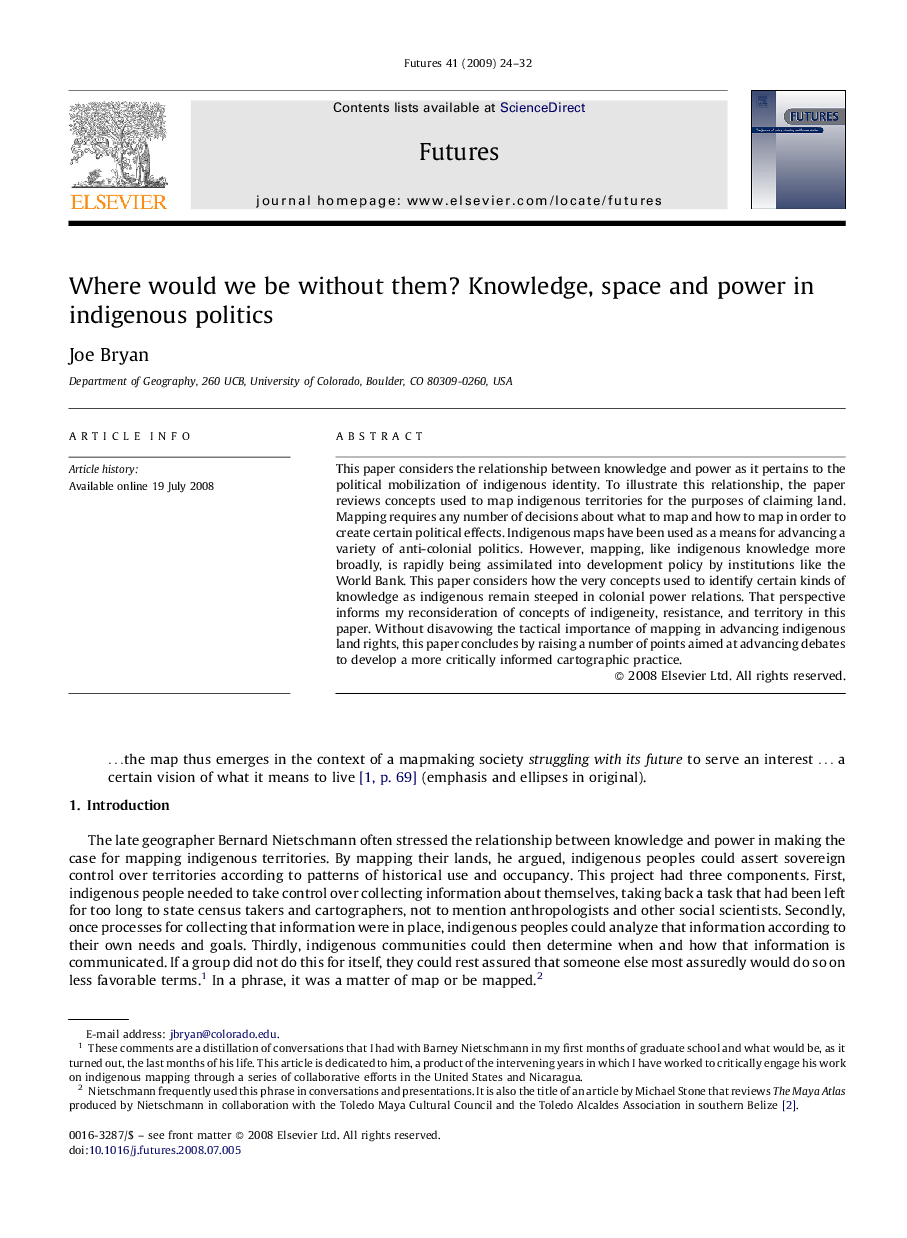| Article ID | Journal | Published Year | Pages | File Type |
|---|---|---|---|---|
| 1016062 | Futures | 2009 | 9 Pages |
This paper considers the relationship between knowledge and power as it pertains to the political mobilization of indigenous identity. To illustrate this relationship, the paper reviews concepts used to map indigenous territories for the purposes of claiming land. Mapping requires any number of decisions about what to map and how to map in order to create certain political effects. Indigenous maps have been used as a means for advancing a variety of anti-colonial politics. However, mapping, like indigenous knowledge more broadly, is rapidly being assimilated into development policy by institutions like the World Bank. This paper considers how the very concepts used to identify certain kinds of knowledge as indigenous remain steeped in colonial power relations. That perspective informs my reconsideration of concepts of indigeneity, resistance, and territory in this paper. Without disavowing the tactical importance of mapping in advancing indigenous land rights, this paper concludes by raising a number of points aimed at advancing debates to develop a more critically informed cartographic practice.
